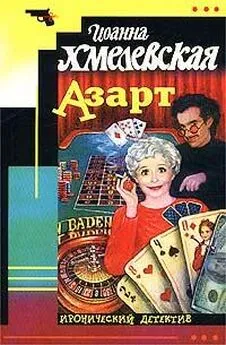Barbara Hambly - Dead water
- Название:Dead water
- Автор:
- Жанр:
- Издательство:неизвестно
- Год:неизвестен
- ISBN:нет данных
- Рейтинг:
- Избранное:Добавить в избранное
-
Отзывы:
-
Ваша оценка:
Barbara Hambly - Dead water краткое содержание
Dead water - читать онлайн бесплатно полную версию (весь текст целиком)
Интервал:
Закладка:
“Idiot,” grunted Cain, thrusting January along ahead of him to the bow-deck. His yellow fox-eyes glinted under the white slant of brows and his pockmarked face was grim. “Should have thought of that. . . . Guy! Marcus! Zack! Gonna need hands to carry that paddy bastard's corpse . . . Porter! Clay! And the rest of you trim the boat, god damn you! Nothing more on shore to see.”
The men of his coffle promptly retreated. Nobody else did.
“What the hell they gonna do for a pilot now?” demanded Gleet as he maneuvered the little boat against the rails. “We're losin' money every day, feedin' these damn niggers—”
“What the hell you think?” snarled Cain. “Man doesn't need to have nerves to guide a boat. Just brains enough not to get himself killed over yellow-headed bitches that aren't any better than they should be. Get in the boat, god damn you,” he added, half throwing his remaining men down into the skiff. As he climbed down after them, January saw Mrs. Fischer thrust her way through the little gathering of women at the promenade rail, staring out across the water at Molloy's body lying on the weedy bank.
January was the first ashore when the skiff scraped mud a few feet from the corpse. “Mr. Sefton is unwounded,” said Davis, who had returned to Molloy's side, probably to discourage the attentions of the ravens and buzzards that had already begun to circle overhead. “But deeply shaken, as any man of sensitive nature would be . . .”
Quince was crouched beside Hannibal, still rather greenish himself, proffering a bottle and spoon at which Hannibal was shaking his head with weary nausea. “I assure you,” Quince was saying, “that a decoction of boiled lettuce-root and honey is a sovereign remedy for complaints of the stomach.”
“Pray do not corrupt me with pallid brews and weak elixirs,” whispered Hannibal as January came near. “And the problem is not my stomach but my nerves . . . and probably my heart. Nothing will do for it but laudanum, and lots of it. . . .”
“Are you all right?” The fiddler was still shaking all over, as if with deathly cold despite the humid heat already thick in the air.
Hannibal responded with a cracked laugh. “As all right as any man is who has slain his first man.
Will all green Neptune's ocean
Wash this blood clean from my hand?
No, this my hand will rather the multitudinous seas incarnadine,
Making the green one red. . . .”
“He would have killed you!” said Quince in considerable surprise.
“Ah, that makes it all right, then.”
“It does,” said January firmly, pulling Hannibal to his feet. In a lower voice, he added, “God knows what kind of mess it's going to make of Mrs. Fischer's plans to get her treasure back without anyone knowing. . . .” And was rewarded by his friend's sudden wan grin.
“Good God, I'd forgotten it was Molloy who knows where the money is. What do you bet she's searching his cabin even as we speak?” He tried to take a step and caught January's arm; his hand, when January felt it, was like ice, his face still gray and clammy with sweat. “Did you bet on me?”
“No!” said January, anger flaring in the aftermath of shock. “I didn't bet at all.”
“Pity. It might have made your search for your four thousand dollars superrogatory.” Hannibal shivered violently, clearly struggling to stay on his feet. He would have been easier to carry bodily—he weighed barely more than a hundred pounds—but he shook off January's offer to do so.
Cain, in the meantime, had gone with his little gang of slaves to the woods to cut saplings for a litter for the dead man, leaving, again, Davis alone beside the corpse. January bestowed Hannibal in the skiff and went back to kneel beside the Colonel in the mud.
“It was a splendid shot for a pistol.” Davis nodded down at the handkerchief he'd laid over Molloy's head. January lifted the big square of red-blotched white linen, looked down at the gaping crimson hole just beside the left eye. “In a similar situation I don't think I'd have had the resolution to aim for the head. It's far too easy to miss, even at twenty paces. Your master is a remarkable man.”
“He is indeed,” said January, thinking of what it had cost Hannibal, to stand out there and let an experienced marksman aim at him with a loaded gun.
“To be honest—if you will forgive my saying so—I did not think he had it in him.” Davis edged aside as January examined the wound. “I have commanded men, and am something of a judge of them. Mr. Sefton is not one I would have chosen for a mission requiring desperation or resolution.”
“He fools many people,” agreed January, sitting back a little on his heels. Then he leaned forward again, and with as matter-of-fact an air as he could muster, went on to press his hands to Molloy's chest and sides beneath his blue pea-jacket, to listen to Molloy's chest, and to extract the contents of Molloy's pockets. “Had Mr. Molloy near kin?” he asked, spreading out the temperance tract and rumpled copy of the Liberator that Molloy had clearly been tearing up for cigar-spills, and laying upon them the cigar-case, match-box, stateroom key, and thirty dollars in assorted coin and Bank of Louisiana banknotes that the pockets had yielded.
“Mr. Tredgold would know,” replied Davis, wrapping the items in the tracts and folding them together carefully. “He certainly never spoke of family, though of course I was not intimate with a person such as that.”
January felt around Molloy's waist and drew out a money-belt containing another five hundred dollars, a hundred of which was in the form of gold Spanish or Portuguese dollars. These were common currency on the river, of course . . . as were banknotes from the Bank of Louisiana, which was one of the largest establishments in New Orleans and was, of course, Molloy's own Bank. There was nothing else in the belt, nor in Molloy's pockets: no nails, no unexplained keys, no letters.
“There will be an inquiry, of course, in Mayersville.” Davis unfolded his lean form as Cain and his gang returned from the woods and began to lash together a makeshift bier. Interestingly—to January at any rate—violence and death seemed to have calmed the young Colonel's tic rather than exacerbated it. “I think there is ample evidence that it was Molloy who provoked the quarrel; perhaps sufficient reason to believe that had your master not accepted the challenge, Molloy might have resorted to less formal violence. You will not lose many days on your journey, and I assure you, I will debark also to testify to all that I have seen.”
“Sir,” said January, glancing across the water at the Silver Moon, “I appreciate that, and I thank you for all the help you have been. But I am almost certain now that the quarrel was engineered by others—by someone who sent messages to both Hannibal—my master,” he corrected himself quickly, “—to Miss Skippen, and to Mr. Molloy, with the intention of forcing a duel in order to get us, and Molloy, off the boat.”
“Surely you're not still claiming that Weems's ill-gotten goods are hidden somewhere aboard? Every trunk and crate was searched. . . .”
“Every trunk and crate was on that boat for days—long enough for Molloy, I am almost certain, to transfer the bulk of the gold and stock certificates to another hiding-place on board,” said January. “I think that's what Weems was looking for when he was killed. If this boat continues on without us, we lose all chance of finding the loot—and incidentally any chance of identifying once and for all Weems's murderer.”
Davis was silent, one finger curling around the ends of his wispy beard, studying January's face with thoughtful eyes. Beside them, Guy and 'Rodus gently lifted Molloy's body onto the bier, and the other slaves clustered around to load it into the skiff. January glanced back toward the Silver Moon, and saw Mrs. Fischer on the bow end of the boiler-deck, engaged in what looked like a furious three-way argument with Theodora Skippen and Thucydides.
The Colonel said slowly, “Well, I admit that there is something very strange going on aboard the Silver Moon —something that has so far cost two men their lives. I believe that a great number of people are lying about what happened the night before last, and about why you and your master came aboard the vessel in the first place. But as for delaying the entire boat so that it can be taken apart piece by piece . . .”
“I suspect there's something in Mr. Molloy's stateroom that may help us,” said January desperately. “When we get back to the boat, with your permission, and in your presence, I'd like to have a look through the room. . . .”
“I think that's a good idea. I am most curious myself as to what we might find there.”
“And if I might be so bold as to make the suggestion, it might be a good idea to lock and seal the door until the room can be examined.”
Davis looked a little surprised. “Aren't you coming back to the boat with us now?”
“I'll return in a few minutes. Half an hour at the latest. There's something I want to look at here on shore—or look for . Could you speak to Mr. Tredgold about holding the boat until I come back, sir?”
The Colonel nodded, evidently perfectly comfortable with the thought of a trusted slave being permitted to poke about on shore unsupervised. With Hannibal huddled in the bow, and Quince clinging queasily to the stern gunwale and trying not to touch the corpse, the skiff set out over the water, leaving January alone on the bank under the watchful rifles of two deck-hands and Mr. Lockhart on the hurricane deck.
Even with such guardians, January had qualms about remaining on shore alone, though on balance he judged that Davis's authority—self-assumed though it might be—would be better used in making sure Mrs. Fischer didn't ransack Molloy's stateroom, than in witnessing whatever he himself might find here. He first paced off the dueling-ground, finding in the damp mud of the bank the marks of Hannibal's battered old boots, and, twenty paces away, the rucked-up, bloodied earth where Molloy had stood.
Putting his feet in the heel-gouges left by the pilot's first rocked-back shock, he sighted along his own outstretched arm to where Hannibal had stood . . . then turned his head just slightly to the left.
He was looking straight at the little rise of ground covered with oak trees, from which the raven had flown, shrieking, a moment before Davis had given the signal to fire.
But when he reached the grove itself, January gave a groan of frustration, for it was here that Cain's slaves had cut the saplings for Molloy's litter. Bare feet, ragged knees, had left their marks everywhere. Saplings had been pulled up, branches broken . . . any of those forked sticks lying snapped on the ground could have been used to rest the barrel of a rifle on. If the still, damp air here had ever held the smell of powder smoke, it was gone now, shaken away by the stir of activity.
January could only kneel in the soft earth behind a bank of hackberry brambles, where a break in the foliage gave a clear view of the dueling-ground, and of the place where a few minutes before he—and earlier Molloy—had stood. But whatever tracks might have been left there, by whoever it was who frightened the raven from its perch, had been obliterated.
He returned to the upstream edge of the dueling-ground, and for nearly half an hour searched the straggling willows and cottonwoods without finding a lodged pistol-ball that would have borne out his theory of what had actually taken place on the shore. By the time Thu called out to him that Mr. Souter wanted to get under way—that Simon in the engine-room had threatened to cut his own throat before he drew out the fires one more time—January had still found nothing.
Читать дальшеИнтервал:
Закладка:








